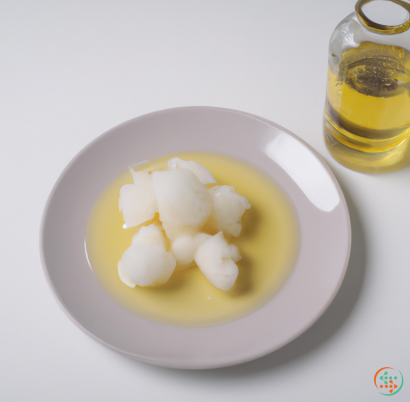Raw Eggs
Raw eggs are, as their name suggests, eggs that are completely unprocessed and uncooked. They are considered to be a superfood due to the large amount of nutrients that they contain, and have a variety of potential health benefits. Before we dive into the many potential benefits, let’s take a look at what raw eggs are, where they come from, and how to prepare them safely.
Raw eggs come from chickens, and have a wide range of uses in many different recipes. However, it is important to note that they need to be handled correctly and cooked thoroughly before they can be eaten. Raw eggs are generally not recommended for consumption due to the risk of salmonella and other bacterial contamination.
If you still want to enjoy the potential health benefits of raw eggs, there are a couple of ways to do it safely. One option is to buy pasteurized eggs, which are eggs that have been heated to a specific temperature that kills any potential pathogens. Another option is to make your own "Bacteria-Free Raw Eggs" at home. This method involves heating the eggs until the egg white is firm, but the yolk remains runny, before being cooled quickly. This heating and cooling cycle kills any bacteria in the egg and makes them safe to eat. However, this method requires the use of a thermometer, and is a good alternative if you don't want to use pasteurized eggs.
So what are some of the potential benefits of eating raw eggs? One of the major benefits is that they provide a high concentration of protein, which can help to build muscle, increase energy levels, and help promote healthy weight management. Raw eggs also contain a good amount of vitamins, minerals, and essential fatty acids, which can help to improve overall health. Research also suggests that consuming raw eggs may help to reduce inflammation in the body, which can protect against a variety of chronic diseases, such as heart disease and diabetes.
Another potential benefit of raw eggs is that they are high in antioxidants. Antioxidants are important for fighting oxidative stress, which is thought to be a major contributor to aging, and can help to reduce the risk of cancer and other diseases. Raw eggs are also a good source of choline, which is an essential nutrient for brain health and development.
Finally, it is important to note that raw eggs should always be handled and stored correctly. This means keeping them refrigerated and using them within a few days of purchase. Additionally, make sure that you cook them thoroughly to avoid any potential bacterial contamination.
In conclusion, raw eggs can have a number of potential health benefits, but should always be handled and cooked properly before consumption. They are an excellent source of protein, vitamins, minerals, essential fats, and antioxidants. However, they should be used with caution due to the risk of salmonella and other bacterial contamination. As long as they are handled and stored correctly and cooked thoroughly, they can be a nutritious and delicious addition to a variety of recipes.
Raw Eggs: Learning How They Reach the Dinner Plate
Have you ever wondered how raw eggs make their way from their place of origin to your dinner plate? Although it may seem like a seemingly straightforward process, the journey from egg to plate involves a careful system of production, transport and safety concerns. In this blog post, we will look at the entire process of how raw eggs are created, transported, and become a component of an egg dish. By examining the production process and the precautions taken to ensure the eggs’ safety and freshness, we can see why these protein-rich foods are so popularly consumed.
Egg Production
The process of producing eggs begins from the egg-laying chicken themselves. Chicks typically begin producing eggs at around 18-20 weeks old, and healthy hens can produce up to 300 eggs in a year. The majority of eggs for human consumption come from factory-farmed chickens, although small scale family farms and free range are popular in some parts of the world. During egg production, two separate components – the egg white and the egg yolk – are produced.
Inside the egg-laying chicken, the egg white is produced by the hen’s oviduct in which albumen, the egg white material, is added as the egg moves through. The egg yolk is produced separately in the hen’s ovary, and is added later whenever the egg white is ready to be collected. The egg then continues along the oviduct where shell membranes and the eggshell itself are formed.
After the eggs are produced in the hen, they undergo several different stages of processing before they reach the final consumer. These steps include washing, grading, packing, and chilling.
Washing
After being laid, the eggs are sanitized by a light spraying of water to remove any dirt, feces, or other contaminants that have come in contact with the eggshell. This washing minimizes the chances of any bacteria entering the egg, but does not prevent all microbial activity.
Grading
The next step in the process is that of egg grading. Egg grading assesses the freshness, size, shape and quality of the eggs and is determined by a combination of visual inspection, candling, and machines equipped with special technology. Eggs that meet the highest standards and quality guidelines become the grade AA eggs, which are the most desired for human consumption.
Packing
After the eggs have been graded, they are then carefully packed into their individual cartons or trays. Different packing methods must be used, depending on the size of the eggs and the method of transport, to ensure that the eggs remain undamaged throughout the process.
Chilling
The final stage of the egg production process is the cooling or chilling of eggs. This is done to slow down the growth of bacteria and prevent spoilage. Eggs are usually kept between 7°C and 8°C during chilling.
Egg Transportation
The next step in getting eggs to a dinner plate is the transportation of the eggs from their original location to the point of sale. There are a few different methods of egg transportation, the most popular being shipping containers and refrigerated trucks.
Shipping Containers
Shipping containers, also known as “reefers”, are specialized containers equipped with temperature control, allowing the eggs to be shipped over longer distances with fewer safety concerns. Reefers are most common when shipping eggs overseas, as they minimize the amount of time the eggs are exposed to extreme temperatures.
Refrigerated Trucks
Refrigerated trucks are the most common method used for transporting eggs to the point of sale. These trucks are insulated to maintain a safe temperature range, and equipped with air vents, thermometers and alarm systems for added safety. Refrigerated trucks are more cost effective than reefers, but are not designed for travel over long distances, due to concerns over temperature stability and safety.
Safety Concerns
No matter what type of transportation method is used to move eggs from point A to point B, one factor that always needs to be taken into consideration is the safety of the eggs. Eggs are highly perishable, and can easily become contaminated if not properly stored, handled, and transported. It is important that all parties involved in the handling and transport of eggs adhere to strict safety protocols to ensure that eggs reach their destination in an intact, safe, and edible condition.
The most important safety procedure before transport is the efficient and meticulous examination and testing of the eggs. It is important to check for undetected cracks in the eggshells which may have occurred during production. Cracks in the eggshell can provide a window of opportunity for bacteria to enter the egg, compromising its integrity. Eggs with cracks should be discarded, as they could be a source of foodborne illness if consumed.
Another key safety measure is proper storage of the eggs during transport. It is important to keep the eggs at an optimal temperature range of 7° C and 8° C, and to make sure that the eggs are each insulated from direct contact with the walls of the transportation unit. Insulation helps protect the eggs from sudden changes in temperature, which in turn helps to ensure that the eggs reach the retailer or consumer in the best possible condition.
Eggs for Human Consumption
Once the eggs have been transported to their destination, the next step is getting them ready for human consumption. This process begins at the point of sale, with retailers carefully selecting the highest quality eggs for sale to their customers. Retailers may also enforce a sell-by date to ensure that any eggs left unsold after the expiration date are removed from the shelves and discarded.
Once the eggs have been purchased they are ready to be prepared and consumed. Due to the complexity of transporting raw eggs, it is advised that consumers only purchase eggs that have been washed, graded and packed correctly, and are still within the expiration date. It is also highly advisable that consumers take appropriate hygiene measures when handling raw eggs in the kitchen. This includes washing hands thoroughly before and after working with raw eggs and any contaminated surfaces, using clean utensils, and ensuring that any cooked egg dishes are cooked until they are no longer pink.
Conclusion
As we’ve seen from this blog post, there is much more to the journey from egg to plate than meets the eye. In order for eggs to reach the dinner plate in a safe and edible condition, there must be a system of production, transport, and safety measures in place. Conveniently, this system is already in place, providing consumers with a quick, easy and affordable way to enjoy fresh eggs as part of a nutritious meal.
| Vitamin A | 0.16 mg | |
| Vitamin D | 0.002 mg | |
| Vitamin D3 | 0.002 mg | |
| Vitamin E | 0.00105 grams | |
| Vitamin K | 0.3 ug | |
| Vitamin B1 | 0.04 mg | |
| Vitamin B2 | 0.46 mg | |
| Vitamin B3 | 0.08 mg | |
| Vitamin B4 | 0.2938 grams | |
| Vitamin B5 | 0.00153 grams | |
| Vitamin B6 | 0.17 mg | |
| Vitamin B9 | 0.047 mg | |
| Vitamin B12 | 0.89 ug |
| Calcium | 0.056 grams |
Daily Value 1.3 g
|
| Iron | 0.00175 grams |
Daily Value 0.018 g
|
| Magnesium | 0.012 grams |
Daily Value 0.4 g
|
| Phosphorus | 0.198 grams |
Daily Value 1.25 g
|
| Potassium | 0.138 grams |
Daily Value 4.7 g
|
| Sodium | 0.142 grams |
Daily Value 2.3 g
|
| Zinc | 0.00129 grams |
Daily Value 0.011 g
|
| Copper | 0.07 mg |
Daily Value 0.9 mg
|
| Manganese | 0.03 mg |
Daily Value 0.0023 g
|
| Selenium | 0.0307 mg |
Daily Value 0.055 mg
|
| Fluoride | 0.0011 mg |
Daily Value 0.004 mg
|
| Tryptophan | 0.167 grams | |
| Threonine | 0.556 grams | |
| Isoleucine | 0.671 grams | |
| Leucine | 1.086 grams | |
| Lysine | 0.912 grams | |
| Methionine | 0.38 grams | |
| Cystine | 0.272 grams | |
| Phenylalanine | 0.68 grams | |
| Tyrosine | 0.499 grams | |
| Valine | 0.858 grams | |
| Arginine | 0.82 grams | |
| Histidine | 0.309 grams | |
| Alanine | 0.735 grams | |
| Aspartic Acid | 1.329 grams | |
| Glutamic Acid | 1.673 grams | |
| Glycine | 0.432 grams | |
| Proline | 0.512 grams | |
| Serine | 0.971 grams |
| Glucose | 0.37 grams |
|
| Total Sugars | 0.131141 grams |
per 100g
|
| Capric acid (10:0) | 0.01 grams |
|
| Myristic acid (14:0) | 0.03 grams |
|
| Palmitic acid (16:0) | 2.23 grams |
|
| Stearic acid (18:0) | 0.81 grams |
|
| Total Saturated fatty acids: | 3.08 g | |
| Oleic acid (18:1) | 3.41 grams |
|
| Palmitoleic acid (16:1) | 0.2 grams |
|
| Gadoleic acid (20:1) | 0.03 grams |
|
| Total Monounsaturated fatty acids: | 3.64 g | |
| Omega-3 Clupanodonic acid (22:5) | 0.01 grams |
|
| Omega-6 Eicosadienoic acid (20:2) | 0.02 grams |
|
| Omega-6 Gamma-linolenic acid (18:3) | 0.01 grams |
|
| Omega-3 Alpha-linolenic acid (18:3) | 0.04 grams |
|
| Linolenic acid (18:3) | 0.05 grams |
|
| Linoleic acid (18:2) | 1.56 grams |
|
| Total Polyunsaturated fatty acids: | 1.69 g | |
| Cholesterol | 0.37 grams |
|
| Total Sterols: | 0.37 g | |
| Trans-monoenoic fatty acids | 0.03 grams |
|
| Total Trans fat: | 0.03 g | |







